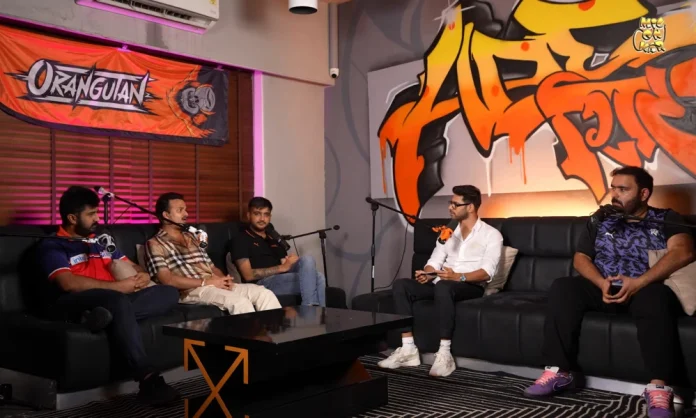The esports industry has seen massive growth over the past couple of years. A myriad of teams and players have emerged successful in numerous different titles. However, the organizations that support these players often find themselves struggling to turn a profit. Orangutan recently released Episode 7 of the “Mic On Kar” podcast, which featured Yash Bhanushali – Orangutan, Animesh “Thug” Agarwal – S8UL, Dr. Rushindra Sinha – Global Esports, Rohit Jagasia – Revenant Esports.
The financial problem faced by esports organizations was discussed by Thug and Sinha. These CEOs offered valuable insights into why esports organizations face such a challenging road to profitability.
S8UL and Global Esports CEO Reveals That Most Esports Organization Are Not Profitable
During the podcast, the host Ocean Sharma asked the guests a question: “How do esports organizations make money?” Responding to this, all the guests said in unison, “They don’t.”
Thug, who has a deep-rooted history in Indian esports, raised a crucial point about the difficulty of monetizing esports organizations. He argued that even if a team were to win substantial prize money, such as INR 5 Crores in four different titles, the cash burn would always be higher. “Look at where we are sitting, this infrastructure takes a huge capital money that could be recouped in I don’t know by when. So if you add the inflation and everything, it is never getting recouped. I don’t think esports organizations make money to be honest. ” he added.
Thug and Sinha Explain How Organizations Finance Their Esports Division and the Cause of the Problem
To offset these financial challenges, both Thug and Sinha highlighted the importance of diversifying revenue streams within esports organizations. “There are different verticals in a gaming organization that have a different cost center and revenue center. This is how you make up for it,” said Thug.
Dr. Sinha put forth the example of Evil Geniuses, a popular North American esports organization that recently won the highly prestigious Valorant Champions 2023. The Valorant roster han two choices: explore opportunities with other organizations or continue with Evil Geniuses at a reduced salary. Talking about this, Sinha said, “A roster that wins the world championship with more than a million dollars in prize money and with more than a million dollars in digital skin revenue, still has to say that they cannot afford a winning roster.”
Following this, Thug explained that the financial situation in the Indian esports industry is as inflated as it is in North America. Thug raised a pertinent question about the ability of esports organizations to monetize their content effectively. “If you look at the Indian market and if you look at monetization opportunities; even if I say that content is the biggest monetization in gaming, how many organizations are able to monetize their content? It is very less. I would say not more than four or five. So what about the other 15 or 20 teams, and is that money even enough to break even the cost they are incurring,” he said.
Thug and Sinha Discusses the Necessity of Cost Cutting
Both Thug and Sinha underscored the necessity of cost-cutting measures in the industry, especially in a scenario where the market might not sustain massive spending. “There is insane potential, the market has changed a lot, and especially because orgs like all four of us and a lot more have been able to sustain. So a lot of brands and investors are able to trust. But we need to bring sanity into the industry that is lowering the salaries and everything. Cost cutting is very important; it is not like there is no revenue,” said Thug.
Building on that, Sinha added, “What you (Thug) said about being able to sustain is absolutely correct, because the problem is that the reason we are able to sustain is because we already have other sources of capital that we invest into, or we are able to figure out from where we can get that capital. It is not because you’re making so much revenue from esports that we can reinvest that.”
Thug rounded off the discussion by emphasizing the need for players and organizations to adapt to the evolving esports landscape. “Players need to realize that it’s not 2020. 2020-2021 was the boom of Indian gaming, where we had a lot of money, but that’s not the case anymore. Market has dried up, money has dried up, so we just need to be very cautious and careful,” he added.
Stay updated with the latest news in gaming and esports by signing up for early access to TalkEsport’s Mobile App. Follow us on Twitter and Google News to ensure you never miss the exciting updates.




